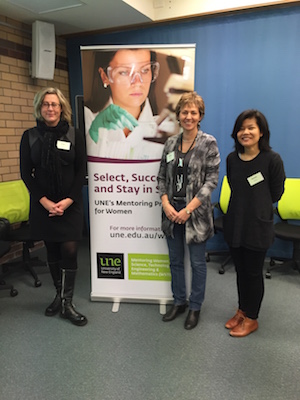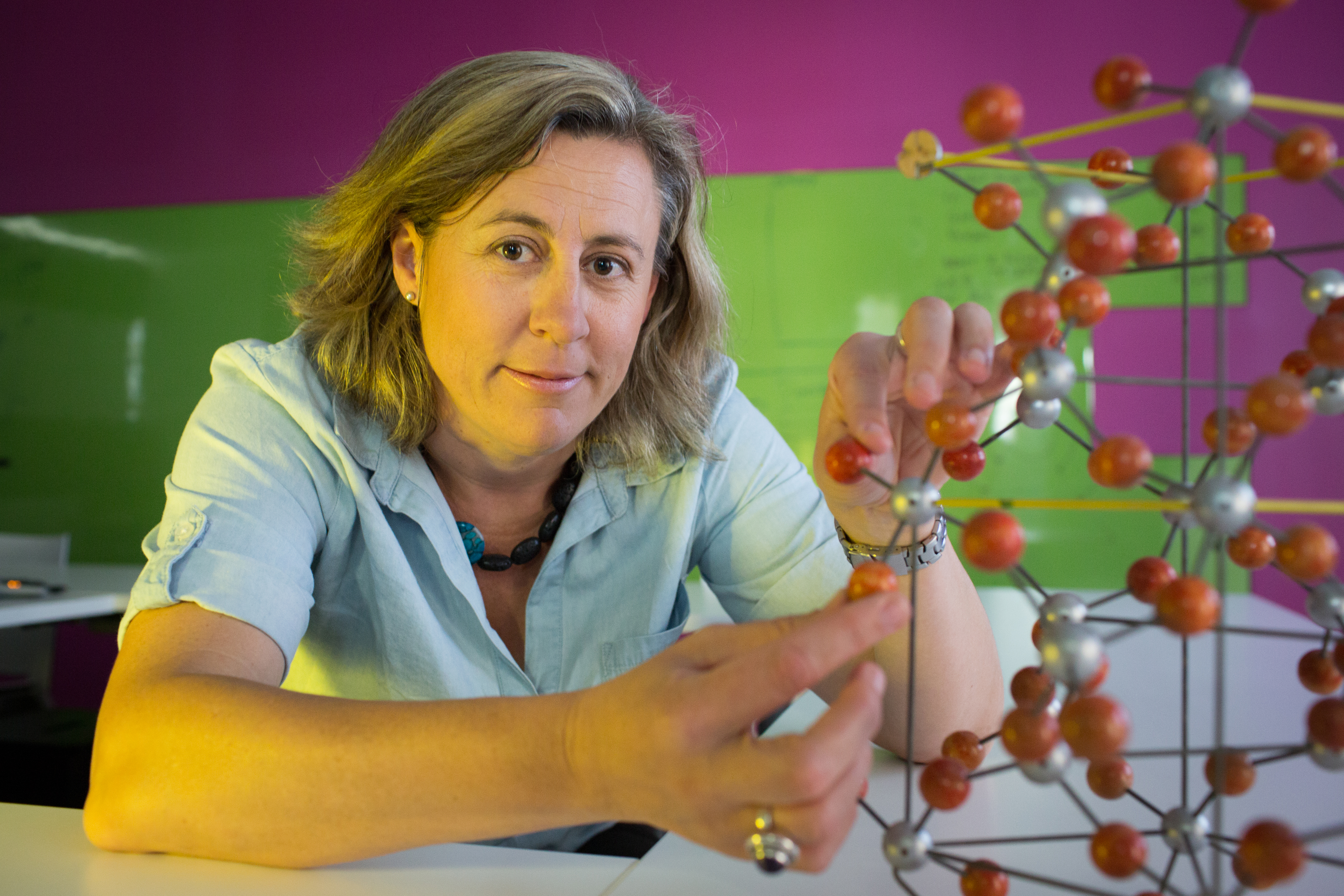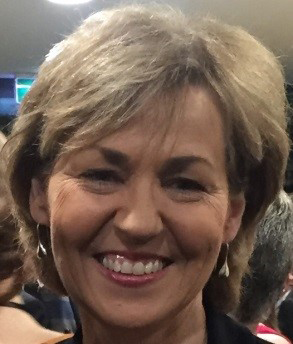It is well known that women are under-represented in Science, Technology, Engineering and Mathematics (STEM) disciplines internationally, and that societal beliefs and learning environments, such as negative stereotypes, lower female test performances and aspirations for careers in STEM.
At The University of New England (UNE) in regional NSW, we have developed a mentoring program called Balancing the Equation - designed to assist female students to make appropriate choices in pursuing and achieving STEM-related career goals during and after university. The program aims to:
- build self-confidence and a sense of belonging;
- identify issues and develop strategies for addressing them;
- encourage women to follow STEM pathways and remain in the STEM workforce;
- provide positive role models and counter gender-STEM stereotypes;
- provide mentors with information, professional development, networking and resources leading to a positive impact on workplace culture;
- engage with school students and the community through outreach activities.
Matching mentors and mentees
A pilot was run in Trimester 2, 2015 with 24 mentees who were all first-year female undergraduate students enrolled in STEM-based degrees, including some studying at a distance. In most cases mentees were matched with both an academic mentor and a professional mentor. The professional mentors included CSIRO research scientists, school teachers, pharmacists, etc.
Participants were from the local area, interstate and overseas. With a recommended frequency, scheduling of meetings was left to the participants to negotiate. Some mentees met with both their mentors simultaneously while others had one-to-one contact. Many of the locals would meet for coffee weekly, while email was the preferred method of contact for others, with Skype and phoning also an option.
Mentors get skilled
An important aspect of Balancing the Equation is the provision of mentoring training at the beginning of the program. We held three half-day workshops: one for mentees, one for mentors and the third was for both groups.
Interactive webinars were provided for those participants who could not attend the face-to-face workshops. Topics covered included roles and responsibilities of both mentors and mentees, skills for establishing and maintaining a mentoring relationship, setting goals, communication styles and giving and receiving feedback. Training also covered issues that may impact on women in STEM careers and explained how mentoring can help address these issues.
A progressive set of activities
In addition to training and support in establishing mentoring relationships, participants also received weekly mentoring tips and had access to a Facebook group, which kept them updated with news and information concerning gender and STEM issues. A number of other events were also organised.
A ‘Women in STEM’ lunch meeting was held with Professor Elaine Scott, a Fulbright Scholar from the University of Washington. A very successful STEM Careers night was held, which was open to university and school students (male and female), parents, teachers, local businesses and the community.
The STEM Careers event was attended by Australia’s Chief Scientist, Professor Ian Chubb, and five excellent guest speakers - Dr Nikola Bowden, Dr Tara Schalk, Ms Marion Rhodes, Dr Christina McGraw and Professor Tony Haymet - who discussed a range of career opportunities in STEM. Team members also attended a science evening at a local girl’s school to discuss STEM opportunities and issues with parents and teachers.
 Dr Erica Smith (Project Leader), Ms Jackie Reid (Project Leader) and Ms Nansiri Iamsuk (Project Coordinator). [Image source]
Dr Erica Smith (Project Leader), Ms Jackie Reid (Project Leader) and Ms Nansiri Iamsuk (Project Coordinator). [Image source]
Positive results
At the end of this pilot program mentees reported increased confidence in making appropriate study and career choices, appreciated the networking opportunities and many felt more optimistic about pursuing a career in STEM:
“The program has been invaluable in gaining contacts and confidence within STEM as well as assisting with starting university life …”
“I valued being able to meet with my mentor and discuss issues. My mentor encouraged me and helped me gain many contacts within the Agriculture and Law industry.”
Academic mentors reported a positive change in their approach to teaching and learning as a result of their participation in the program, and both groups of mentors (academic and professional) felt they benefited from the personal and professional opportunities that arose from the program:
“Seeing others passion in sciences helped give my own passion for science a boost.”
“It’s about getting to know the student as a whole student, not just the small exposure you have to them in the classroom…. that sort of information helps shape how you might deliver content … it helps refine more of a student-centered approach.”
Using the lessons we learned during the development and implementation of the pilot as well as the participant feedback, we have developed strategies to implement improvements such as encouraging less confident students to participate and improving the vetting process for applicants.
The general consensus is that the program should continue and we have observed positive flow-on effects, not only for our students, but also into schools, the work place and the community. Overall, the pilot was highly successful and has a potential for growth and impact for other under-represented groups in STEM, as well fitting into broader STEM initiatives.
If you would like to know further details of the program please contact us on [email protected].
About the authors:
 Erica Smith graduated from the University of Sydney with a Bachelor of Science (Honours) in 1994, The University of Greenwich, UK, with a Master of Science in 1996 and The University of Houston, USA, with a PhD in Theoretical and Computational Chemistry in 2004. She is currently Senior Lecturer in Chemistry at The University of New England (UNE). Erica’s research, which has been published internationally, utilises computer simulations to gain atomic level understanding of biological and industrial systems with a focus on processes that occur at interfaces. She has also published research on chemical education and is a member of the Royal Australian Chemical Institute Chemical Education Division committee. Erica is a project leader of UNEs’ Women in STEM Mentoring Program ‘Balancing the Equation’; and she regularly participates in science communication and outreach programs to help inspire adults and children about science and technology.
Erica Smith graduated from the University of Sydney with a Bachelor of Science (Honours) in 1994, The University of Greenwich, UK, with a Master of Science in 1996 and The University of Houston, USA, with a PhD in Theoretical and Computational Chemistry in 2004. She is currently Senior Lecturer in Chemistry at The University of New England (UNE). Erica’s research, which has been published internationally, utilises computer simulations to gain atomic level understanding of biological and industrial systems with a focus on processes that occur at interfaces. She has also published research on chemical education and is a member of the Royal Australian Chemical Institute Chemical Education Division committee. Erica is a project leader of UNEs’ Women in STEM Mentoring Program ‘Balancing the Equation’; and she regularly participates in science communication and outreach programs to help inspire adults and children about science and technology.
 Jackie Reid is an experienced educator and researcher with over 25 years’ experience in higher education in Australia and overseas. She is a lecturer in statistics and the First Year Learning and Teaching Coordinator (Science and Technology). Research interests include statistics education and the Scholarship of Teaching and Learning (SoTL) in STEM. Jackie works to encourage and facilitate academic engagement with best practice in learning and teaching, and enhance the learning experience for students transitioning to higher education. Jackie has led a number of projects involved with first-year higher education, including an OLT Extension Grant. She is project leader of ‘Balancing the Equation’ and is involved in a $1,000,000 cross-institutional OLT project that aims to engage university academics and community professionals to enhance the professional training of pre-service teachers in science and maths education. Jackie provides statistical assistance to students and staff in the Sciences and has published in several areas including statistics education, STEM education, academic development, animal production, human nutrition and biophysics.
Jackie Reid is an experienced educator and researcher with over 25 years’ experience in higher education in Australia and overseas. She is a lecturer in statistics and the First Year Learning and Teaching Coordinator (Science and Technology). Research interests include statistics education and the Scholarship of Teaching and Learning (SoTL) in STEM. Jackie works to encourage and facilitate academic engagement with best practice in learning and teaching, and enhance the learning experience for students transitioning to higher education. Jackie has led a number of projects involved with first-year higher education, including an OLT Extension Grant. She is project leader of ‘Balancing the Equation’ and is involved in a $1,000,000 cross-institutional OLT project that aims to engage university academics and community professionals to enhance the professional training of pre-service teachers in science and maths education. Jackie provides statistical assistance to students and staff in the Sciences and has published in several areas including statistics education, STEM education, academic development, animal production, human nutrition and biophysics.